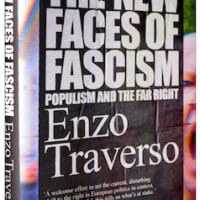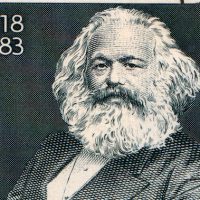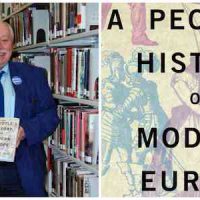-
Marx, ecology and industrial agriculture
British climate activist and socialist Martin Empson writes on why the fight against climate change must be a fight for system change and for socialism.
-
A historian’s view of post-fascism
Whatever we are facing [in world politics], it is not twentieth-century fascism. Hell keeps on disgorging new demons to beset us. And as seasoned exorcists know, each must be called by its proper name before it can be cast out.
– (possibly J. R. R. Tolkien’s Gandalf) -
Daniel Clawson ¡Presente!
Dan was a strong supporter of Labor Notes because it reflected his vision of social transformation, and it was his interest in Labor Notes that prompted him to then join Solidarity.
-
Marx for today: a socialist-feminist reading
CONSIDERING HIS WORK as a whole, Marx had little to say directly about women’s oppression or the relationship between patriarchy and capitalism.(1) And some of what he had to say was, well, misguided. Yet Marxist feminists have drawn on his thought to create a distinctive approach to understanding these issues.(2)
-
Transformation problem unraveled
Moseley’s interpretation establishes the internal coherence of Marx’s theory, thereby creating a more solid basis for its further development on our own, Marxist, terms. Stated differently, there is no need to import unrealistic, abstract-ideal concepts from other economic theories in an attempt to “modernize” Marxist economics.
-
Making their own history
More than half a century ago, E. P. Thompson pioneered a new approach to labor history in The Making of the English Working Class. Thompson was dismayed with the bourgeois idea that history is made by great men, and the occasional princess or queen, but also frustrated with socialist histories that replace statesmen and business moguls with wise, if not infallible, party leaders and union bosses allegedly executing the iron laws of history.






